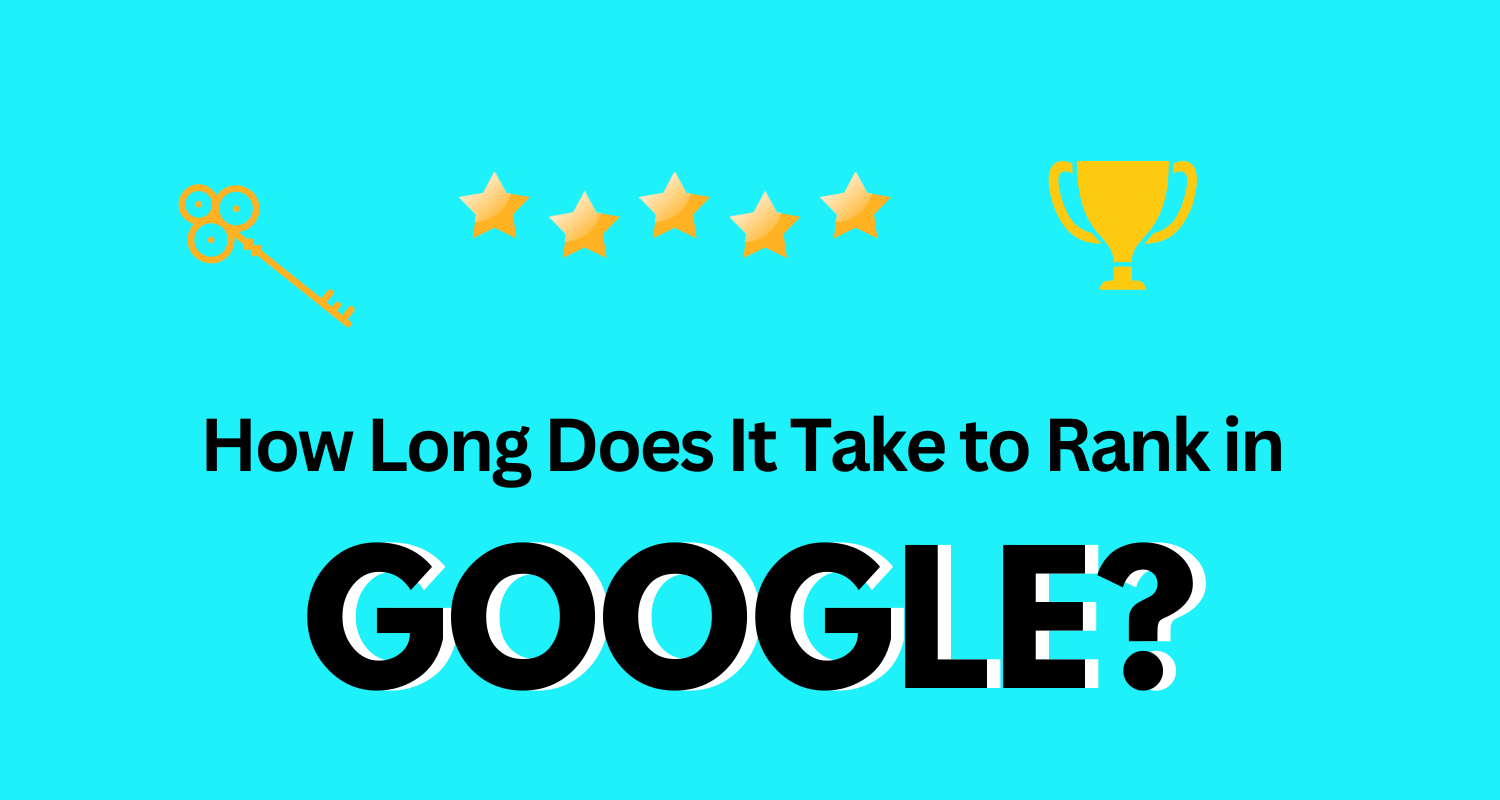When it comes to search engine optimization (SEO), one common question that arises is, "How long does it take to rank in Google?" The truth is, there is no definitive answer, as numerous factors influence the time it takes for a website to climb the search engine rankings.
Still, I can estimate some data based on my personal experience. If you are properly targeting keywords and producing high-quality content, it might take three to six months to rank your keywords on the first page of Google.
In this article, we will delve into the topic, providing insights into the average timeframes for ranking and discussing key factors that can expedite the process.
Facebook Not Loading on Chrome: How to Fix
Understanding the Timeframe for Ranking:
Competition Level:
The level of competition within your industry plays a significant role in how long it takes to rank on Google. Highly competitive niches, such as finance or technology, tend to have more established websites with robust SEO strategies.
Consequently, it may take longer to surpass them in the search results. Conversely, if your website operates in a niche with less competition, you may experience quicker ranking progress.
Keyword Difficulty:
The difficulty of the keywords you are targeting also affects the time required to rank. Keywords with high search volume and intense competition will naturally take longer to rank for, as they require more effort and resources to outrank the established players. On the other hand, long-tail keywords (specific, less competitive phrases) can yield faster results.
Site Age and Authority:
Newly launched websites typically require more time to establish authority and gain the trust of search engines. Google tends to favor older domains with a history of relevant content and consistent growth.
However, this doesn't mean that newer websites cannot achieve high rankings. By implementing a solid SEO strategy and producing high-quality content, you can expedite the ranking process.
Content Quality and Relevance:
Content is king in the SEO realm, and search engines prioritize high-quality, relevant content that provides value to users. By consistently creating informative, engaging, and well-optimized content, you increase the chances of ranking higher in search results.
The frequency of content updates and the incorporation of targeted keywords also contribute to improved rankings.
Backlink Profile:
Backlinks, or links from other websites pointing to your own, are crucial for building authority and trust with search engines. However, the quality and quantity of backlinks matter more than sheer numbers.
Acquiring high-quality backlinks from reputable sources within your industry can significantly expedite the ranking process. Building a strong backlink profile takes time, but it is a worthwhile investment.

Factors That Help in Quick Ranking:
a. Technical Optimization:
Ensuring that your website is technically optimized is vital for quick ranking. This includes optimizing page load speed, implementing structured data markup, improving mobile responsiveness, and ensuring proper website architecture.

A technically sound website provides a positive user experience and enhances your chances of ranking higher.
b. On-Page SEO:
Optimizing your web pages for search engines is crucial. This involves proper keyword research and placement, crafting compelling meta titles and descriptions, optimizing header tags, and using relevant alt tags for images.
By aligning your on-page SEO practices with best practices, you enhance the visibility of your website in search results.
c. User Experience (UX):
User experience plays a pivotal role in both ranking and user engagement. A website that offers a seamless browsing experience, easy navigation, and intuitive design elements is more likely to rank higher.
Factors such as low bounce rates, longer time spent on site, and high click-through rates contribute to improved rankings.
d. Social Signals:
Engaging with your audience through social media platforms can indirectly impact your search rankings. While social signals themselves may not be direct ranking factors, they contribute to increased brand visibility, content amplification, and potential backlink opportunities, all of which can positively influence your ranking potential.

5 FAQs About Ranking in Google:
1. Can I guarantee a specific timeline for ranking on Google?
Unfortunately, no SEO expert can guarantee a specific timeline for ranking on Google. The time it takes to rank depends on various factors, as discussed earlier. SEO is a long-term strategy, and patience and consistent effort are key.
2. How long does it typically take to see results?
While it varies, it's common to start seeing improvements within 3 to 6 months of implementing an SEO strategy. However, significant progress and higher rankings may take 6 months to a year or more, depending on the competitiveness of your industry and keywords.
3. Are there any shortcuts to achieve quick rankings?
Beware of any shortcuts or black hat SEO techniques promising quick rankings. These tactics may provide short-term gains but can result in penalties or even getting your website banned from search results. Focus on ethical, white-hat SEO practices for sustainable and long-lasting results.
4. How can I speed up the ranking process?
While there are no shortcuts, there are some strategies to accelerate the ranking process. Invest in quality content creation, conduct thorough keyword research, build a strong backlink profile through outreach and networking, and continuously optimize your website for better user experience and technical performance.
5. Can paid advertising help with ranking on Google?
Paid advertising, such as Google Ads, can drive traffic to your website, but it doesn't directly influence organic rankings. However, a well-executed paid advertising campaign can increase brand visibility, attract more visitors, and potentially generate more backlinks, indirectly benefiting your organic search rankings.
Conclusion:
Ranking in Google is a complex process influenced by several factors. While it's challenging to pinpoint an exact timeline, understanding the competition, keyword difficulty, site age, content quality, and backlink profile can provide insights into the timeframes involved.
By implementing a comprehensive SEO strategy, focusing on technical optimization, on-page SEO, user experience, and building a solid backlink profile, you can increase your chances of achieving higher rankings in Google's search results. Remember, SEO is a continuous effort that requires adaptability and staying up-to-date with industry trends and algorithm changes for long-term success.
